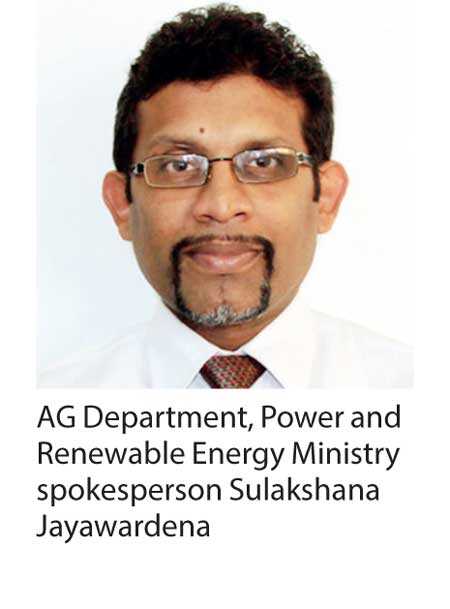Monday Feb 23, 2026
Monday Feb 23, 2026
Friday, 3 August 2018 00:00 - - {{hitsCtrl.values.hits}}

By Chathuri Dissanayake
The Auditor General (AG) Department has written to Ceylon Electricity Board Director General asking for explanations on close to 40 allowances given to employees working in the organisation.
The audit query carried out following a petition filed by a member of the public questioning the allowances received by engineers attached to the State-owned entity outlines several irregularities in CEB finances, including the method employed to deduct PAYE tax from its employees.
The AG department has also raised concerns on how a large number of allowances given to the employees may negatively impact in transfers as they may not want to forgo allowances received. The letter sent on 3 July to the CEB Chairman has given 14 weeks for a response. The CEB is set to respond to the query in writing by today, after taking an extension on the initial deadline set by the AG department, Power and Renewable Energy Ministry spokesperson Sulakshana Jayawardena told Daily FT.
“If the AG Department is not happy with the response, then the Ministry will have to look into the matter,” he said.
The letter written, requesting explanations, also details audit findings on how allowances have been given to some employees for carrying out their routine duties, such as incentives for correct meter readings, and special allowances to secretaries and special allowances to special grade clerks. However, according to the AG department, a committee appointed to study the allowances given by the CEB Board in 2008 has recommended suspending this practice. The Auditor General has recommended paying a productivity-based allowance, stating that there was no fair basis to pay allowances for routine work assigned to an employee.
The same committee has also recommended limiting the total value of allowances given to employees to 65% of their basic salary, excluding two specific allowances - namely Remote Station Allowance and Hotline Allowance. Further, the committee has also recommended that the allowances should only be limited to those who were receiving them as at 1 April 2008. These recommendations have not been implemented by the CEB, as the AG department says there were 226 officers receiving allowances higher than 65% of their salary as at 22 February, according to information furnished by the CEB internal auditor. This is excluding a number of allowances given for working in difficult conditions.
The AG Department also noted that, despite a Government decision to obtain National Salaries and Cadre Commission approval for all allowances paid, the 27 allowances which were approved by the commission in 2008 have been revised subsequently without approval. The inquiry also revealed that Management had not discussed payment of allowances with the Union in years 2015 and 2016 either.
The audit query also highlighted the system employed by the CEB to make PAYE tax payments of employees was also questionable. According to the calculations of the AG department, the CEB paid Rs. 678 million as tax owed by the employees from its funds. The move was also highlighted earlier by the Auditor General where over Rs. 2.6 billion has been paid to the Government from CEB’s own fund as tax owed by its employees. Although the issue was flagged by the AG department in the annual audit reports under irregular transactions, the practice has continued.